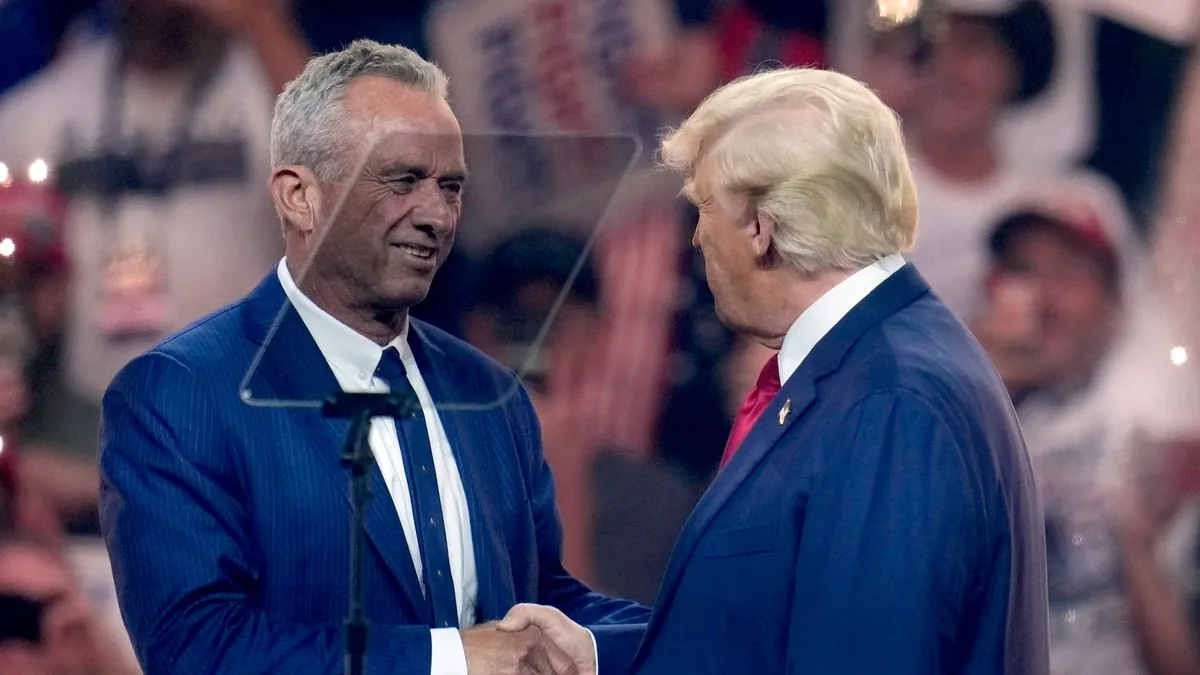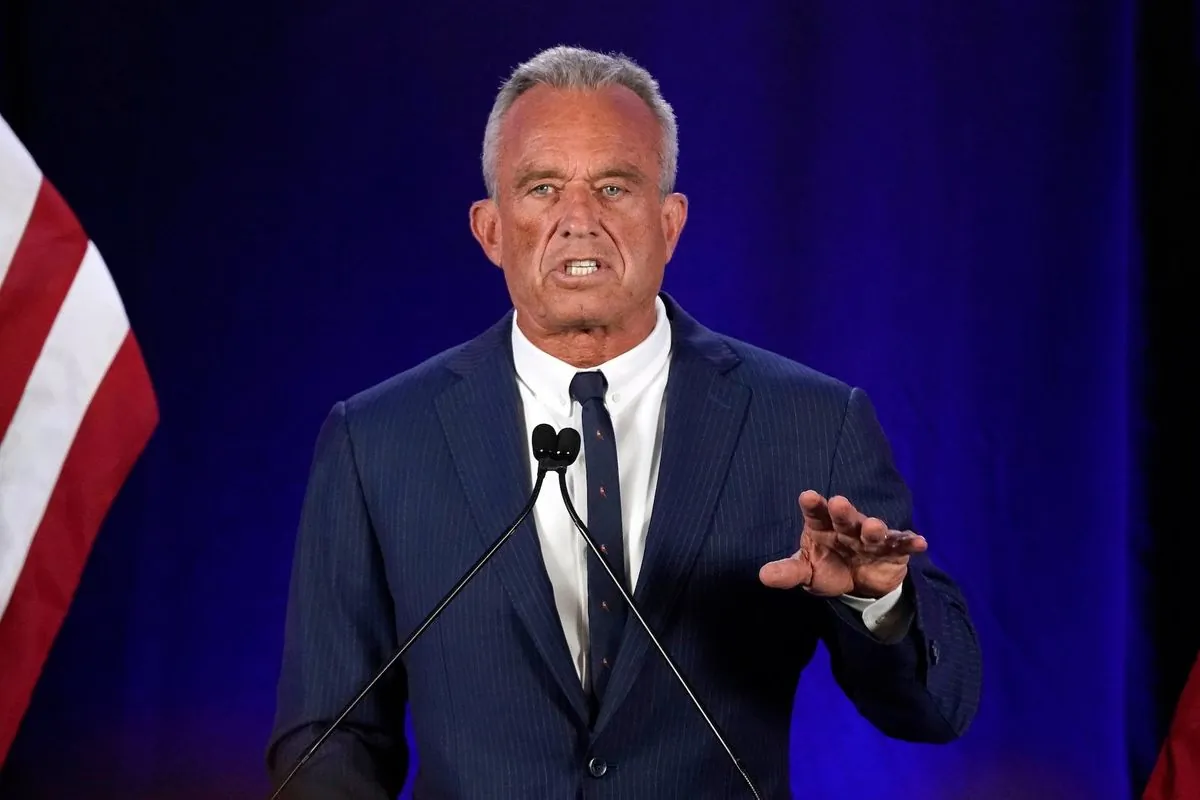Kennedy Endorses Trump: A Clash of Beliefs vs. Facts in 2024 Race
Robert F. Kennedy Jr. backs Donald Trump for 2024, highlighting a growing divide between subjective beliefs and objective facts in American politics. This unexpected alliance reshapes the electoral landscape.

In a surprising turn of events, Robert F. Kennedy Jr., nephew of former President John F. Kennedy, has officially endorsed Donald Trump for the 2024 presidential race. This unexpected alliance, announced at a joint event in Arizona, marks a significant shift in the political landscape and underscores a growing divide between subjective beliefs and objective facts in American politics.
Kennedy, who had previously criticized Trump, cited three main reasons for his endorsement: concerns over government censorship, the ongoing conflict in Ukraine, and Trump's purported interest in addressing chronic diseases. However, these justifications have raised eyebrows among political analysts and fact-checkers.
"I believe Donald Trump can quickly resolve the conflict in Ukraine and make chronic disease his political legacy."
This statement reflects a credulous acceptance of Trump's claims and overlooks the complex realities of international conflicts and public health issues. The war in Ukraine, which began with Russia's full-scale invasion on February 24, 2022, has proven to be a protracted and multifaceted crisis that defies simple solutions.
Kennedy's endorsement aligns with a broader trend in contemporary politics where personal beliefs are often prioritized over established facts and expert opinions. This phenomenon, which gained prominence in the mid-2010s under the term "post-truth" politics, has been amplified by the internet and social media platforms.
Kari Lake, a prominent Trump supporter and former Arizona gubernatorial candidate, praised the endorsement, stating that it demonstrates the welcoming nature of their movement. This acceptance of Kennedy, despite his history of promoting misinformation, particularly regarding vaccines, highlights the movement's prioritization of loyalty over factual accuracy.
The 2024 presidential race is shaping up to be a contest between two fundamentally different approaches to truth and governance. On one side, Trump and his allies, including Kennedy, represent a worldview that often prioritizes subjective beliefs and personal convictions. On the other, Vice President Kamala Harris and the Democratic establishment generally align with a more traditional, fact-based approach to policy-making.
This dichotomy reflects a broader societal challenge in the digital age. The internet, once hailed as a tool for democratizing information and increasing global awareness, has instead led to the formation of self-reinforcing belief systems and echo chambers. These online communities often resist external fact-checking and expert opinions, creating parallel realities that can be difficult to reconcile.
As the election approaches, voters will be faced with a choice that goes beyond typical policy differences. They will be asked to consider the very nature of truth and the role of expertise in governance. The outcome of this contest may have far-reaching implications for the future of American democracy and the global political landscape.

In conclusion, Kennedy's endorsement of Trump represents more than a simple political alliance. It symbolizes a broader shift in how information is valued and processed in the public sphere. As the 2024 campaign unfolds, the tension between subjective beliefs and objective facts will likely remain a central theme, challenging voters to navigate an increasingly complex information landscape.


































